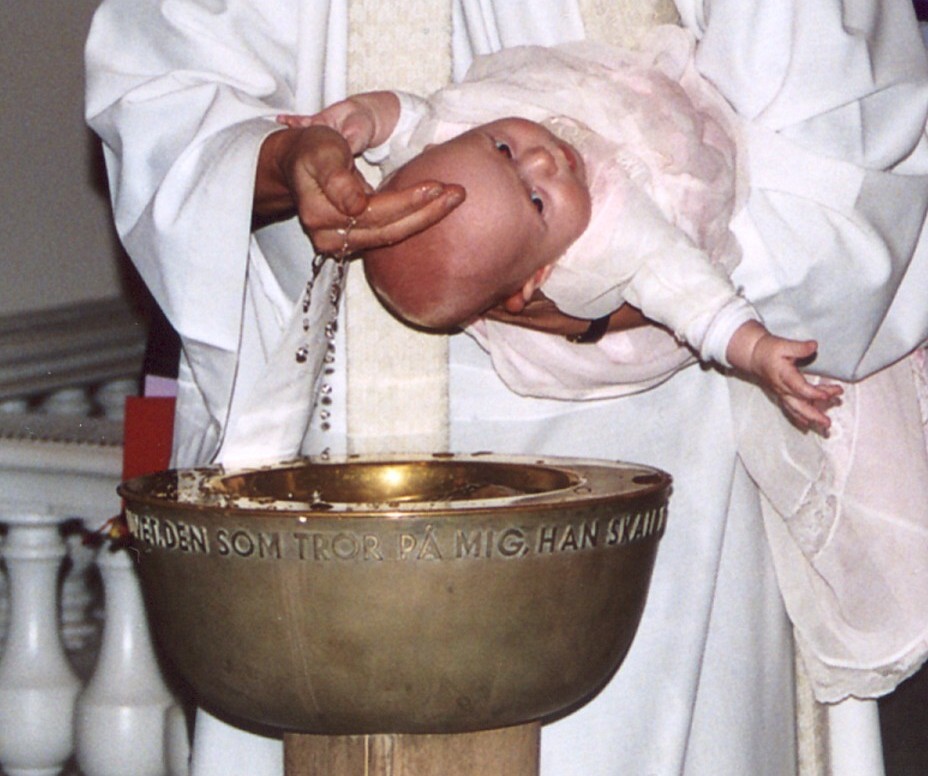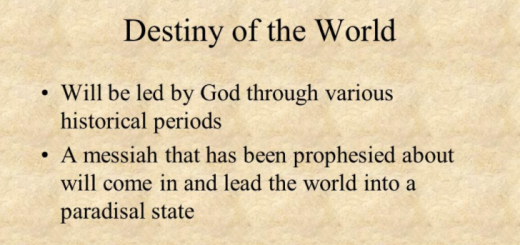Dangerous Rituals, Infant Baptism. Is it necessary?

 Shri Varghese Pamplani, the writer, graduated in economics with politics and world history, the last being the favourite subject, from St. Thomas College Pala in 1961. Worked as a high school teacher of English and history on leave vacancies at St. Joseph High School Thiruvambady near Calicut. Got appointed in the Controller of Defence Accounts, Mumbai at the end December 1962. In 1963 joined RBI Central Office Mumbai, Public Debt Manage Management‐ giving procedural instructions to RBI Public Debt Offices for 15 years. Did post‐ graduate course in the Bombay School of Economics. For carrier prospects, shifted to Central Office, Department of Personnel Management. Transferred to Trivandrum in 1981, worked mostly in the departments dealing with banking and non‐banking supervision and urban cooperative banks such as Meenachil East Urban Bank, Pala Urban Bank etc. was Principal Inspecting Officer of erstwhile Lord Krishna Bank, South Indian Bank and Catholic Syrian Bank. Was part of the team which conducted the last inspection of Bank of Cochin prior to its liquidation. Worked in Chennai mainly dealing with above areas. Retired in October 2000.
Shri Varghese Pamplani, the writer, graduated in economics with politics and world history, the last being the favourite subject, from St. Thomas College Pala in 1961. Worked as a high school teacher of English and history on leave vacancies at St. Joseph High School Thiruvambady near Calicut. Got appointed in the Controller of Defence Accounts, Mumbai at the end December 1962. In 1963 joined RBI Central Office Mumbai, Public Debt Manage Management‐ giving procedural instructions to RBI Public Debt Offices for 15 years. Did post‐ graduate course in the Bombay School of Economics. For carrier prospects, shifted to Central Office, Department of Personnel Management. Transferred to Trivandrum in 1981, worked mostly in the departments dealing with banking and non‐banking supervision and urban cooperative banks such as Meenachil East Urban Bank, Pala Urban Bank etc. was Principal Inspecting Officer of erstwhile Lord Krishna Bank, South Indian Bank and Catholic Syrian Bank. Was part of the team which conducted the last inspection of Bank of Cochin prior to its liquidation. Worked in Chennai mainly dealing with above areas. Retired in October 2000.
From the moment, a child is born to Catholic parents,the Church tries its best to entrap the new born too in its intricate web of meaningless rituals. The nefarious game starts with “water dunking”, otherwise known as baptism purported to be for washing away the stain of “Original Sin”. The ceremony now in vogue in the Catholic dispensation in Kerala is tedious, atrocious and insensitive to the dignity of the human person. A seven day or so old child is made to wait near the entranceof the church, often in hot and humid conditions, on the ground it is contaminated by “original sin” from the sixth week of its conception. According to the twisted view of the Church, the newborn is afflicted the sin because its birth is the result of fornication between its parents. It is only after the mumbo jumbo of intonations by a priest, the infant is allowed inside the church. Baptism’s main ingredient is dipping the protesting and incessantly crying child in cold water. This inhuman ritual, is accompanied by a long winding mass along with the insufferable blah blah of the priest. The whole exercise normally prolong up to an hour and a half. It is ensured that the programme’s end should converge to the lunch time of the officiating priest. In addition to a generous tip, he is provided with a free lunch by the infant’s close relatives which he consumes in privacy. The tragedy is that the hapless baby is denied of any nourishment for hours together.
When the ordeal is finally over, the poor thing would normally be withered and half dead unable even to cry. Towards the end of the fourth century CE, Augustine of Hippo, the African fornicator debauchee and penitent Manichean postulated the preposterous theory that all humans are contaminated with “Original Sin” on account of the sexual union between the mythical first man, Adam and his mate Eve, the first woman. According to Augustine, eating the God forbidden “ Fruit of the Tree of Knowledge” was the carnal knowledge of the pair. As a result, according to him, the humankind inherited death and forfeited heaven. Augustine, a never satisfied sexual fiend, whose entire sex experience had been illicit and guilt ridden, first with his low cast concubine from the age of 15 for the next 15 years up to the age of 30; fathering a child with her; abandoning her for the proposed marriage with an heiress aged 10. He was forced to wait for two years for the bride to be tom reach the marriageable age of 12. During the interregnum, he satisfied his sexual cravings with other women. The marriage proposal fizzled out. At the age of 32, the rake Augustine became a Christian and a bishop in the prestigious diocese of Milan of the powerful Ambrose, all in quick succession. He was elevated to the status of a saint by the Church and adopted his strange notion of “Original sin” to justify infant baptism to keep the faithful in perpetual thraldom. Thus one man’s acute sene of guilt arising out of his unbridled sexual indulgences resulted in expounding a dangerous proposition which was foisted by the Church on all Christians for all the time to come. The imposing of the burden of an illogical “sin” on an infant incapable of understanding a thing is a travesty of common sense and a negation of human dignity. The admittance of a rank minor not having any faculty of informed consent to the Church, does stand the test of legality. While the minor can enjoy all the advantages of any contract, it will not suffer any of its debilities. It is strange that even in these times, the members of the Catholic Church subscribe to the utter nonsense of “original sin”, the perverted interpretation of a myth by a sick mind. How sex, the very basis of life on earth of humans and other life forms, can be stigmatised as sinful and dirty? The proposition that the engagement in a perfectly normal and natural biological necessity will lead sin is absurd, to say the least. Despite the disobedience shown by Adam to God’s injunction in the Garden that “ in the day in which thou shalt eat of the tree of knowledge thou shalt die ( Genesis2:17), Adam did not die. God pardoned him. “ Why then should He not spare His race to the thousandth generation? Why should He consign to infinite and eternal torments, innocent infants whose father He received back into forgiveness and favour?” Adam is claimed to have lived 930 years after his criminal repast of the forbidden fruit, later twisted as the enjoyment of sex by Adam with Eve. Judging from the number of children he had, he would have indulged in sexual unions many a times; God tolerantly watching his sexual associations without lifting a finger. “ If all men are born objects of the eternal wrath of that Being who confers on them life, if they can possibly be guilty before they can even think, it is then a fearful and execrable offence to give them being; and marriage is the most atrocious of crime. Marriage in this system is nothing more or less than an emanation from the Manichean principle of evil, that those who engage in it, instead of adoring God, adore the devil”. Augustine pronounced his sentence of eternal hell upon all children born or to be born throughout the world. “ The Catholic faith teaches that all men are born so guilty that even infants are certainly condemned when they die without being regenerated in Jesus” (Augustine) Jesus never said that the infant that is not baptised will be damned. It is the firm belief of the Christians that Jesus came down to expiate all sins, to redeem mankind by His blood. Then how can infants who could not and do not commit any sin can be charged and condemned?. The fact remains that there is no report in the Bible of Jesus ever baptising any body, nor did Paul who dwelled on the sin of Adam extensibly, did not refer to the “Original Sin”, nor undertook any baptism, least of all infant baptism. During the first centuries of the Christian religion, baptism of infants was not customary; it was not believed that infants would be tainted with the sin of Adam. None of the “Fathers of the Church “ had recommended this ritual. The concept of original sin was not developed in Clement’s time. He does not say that the teeny weeny creature of a day would be damned if it dies without baptism. He felt that the passions which are capable of corrupting all mankind has not taken hold of an innocent infant. “What evil can a new‐born infant commit? How could it possibly prevaricate? How could such a being, which has, in fact, as yet done no one thing fall under the curse of Adam” (Clement). In Origen’s view original sin consisted only in the misfortune of resembling the first man by being liable to sin like him. He says “ what an abomination so atrociously to insult the Author of the Nature as to impute him that he may damn to all eternity the unhappy mankind, whom He introduces to the present life so short a span.” Origen in his exposition of the Epistle of Paul to Romans maintains that the sin which entered in the world through Adam is the propensity to sin ; that it is very easy to commit evil, not that man will always commit evil and is guilty as soon he is born . To him baptism was only a seal of Christianity; it washed away all sins but no man has said that it washed away those which the subject had not committed; no man has asserted that an infant would be sentenced to be burned in everlasting flames as a result of its dying within two minutes of its birth without being baptised. Tertullian was averse to infants being baptised. According to him “ the ‘ original sin’ which these poor innocents could not possibly be guilty of, would not cause their reprobation and expose them to suffer boundless and endless torture for a deed which it was impossible for them to have the slightest knowledge or ability to do. The view that these innocents will be wilfully consigned to eternal damnation is the most execrable abomination.” It is an incontestable fact for four hundred years, Christians did not baptise their children. Baptism was administered to grown up persons after imparting knowledge of Christian way of life for sufficiently long period. The ceremonial nude bath done in the wee hours of the morning prior to baptism was an elaborate affair. That is understandable. In arid regions with chronic water shortage, where people take bath once in a blue moon, a proper bath would clean their smelly bodies more than their souls and make them to be tolerable to others. Every ritual and religious observances are attuned to the time and place. A Catholic baby in Kerala, as in the case of infants of communities in the region, are meticulously cleaned often. Generally the population in these parts wash themselves with bath soaps frequently; some times even thrice a day. Hence a ceremonial immersion in water in a church is irrelevant, superfluous and unnecessary. Jill, Duchess of Hamilton writes in the Catholic Herald 17 July 2015. “ In ‘Antiquities XVII, Josephus describes John’s baptism practices. “First people gathered to listen to his preaching, after which he asked them to lead righteous lives, both towards each other and towards God. This was followed by ‘cleansing of souls and the purging of sins’ – and finally the immersion in water”. Can a week old infant be capable of understanding the import of its being dipped in a basin of water? Why not a child is allowed to be free to make its own considered decisions at an appropriate age as its preferred way of life. In the meanwhile, what parents can best do is to nurture it physically and mentally by becoming examples of the correct way of living without abdicating their bounden responsibilities to third parties. It may be easier said than done. The view that belief systems of alien places need not be followed blindly seems to have some merit. This is, all the more relevant in the case of a vibrant and ancient civilisation like India. In a world of acute religious strife what is pertinent is never to stand out as anachorism. Moral and ethical behaviour is much larger than the sum total of all sorts of rituals. Perhaps. Ultimately, what matters may be that humanity could strive to live best as humans It is surprising to observe that in this twenty first century, despite the un‐ preceded exponential knowledge explosion, the average believer is reluctant to revisit many of the unwanted meaningless ways of his religion and discard blind faith and its appurtenances. May be the time has come to stand‐up and prove that the non‐priestly members of the Catholic Church are not, after all brainless goats . Vargese Pamplanil Ph. 09447152533/ 04828204533 (India)/ 00447719580312 (UK) Emails: pamplanil@gmail.com/ pmvparijat@gmail.com
















